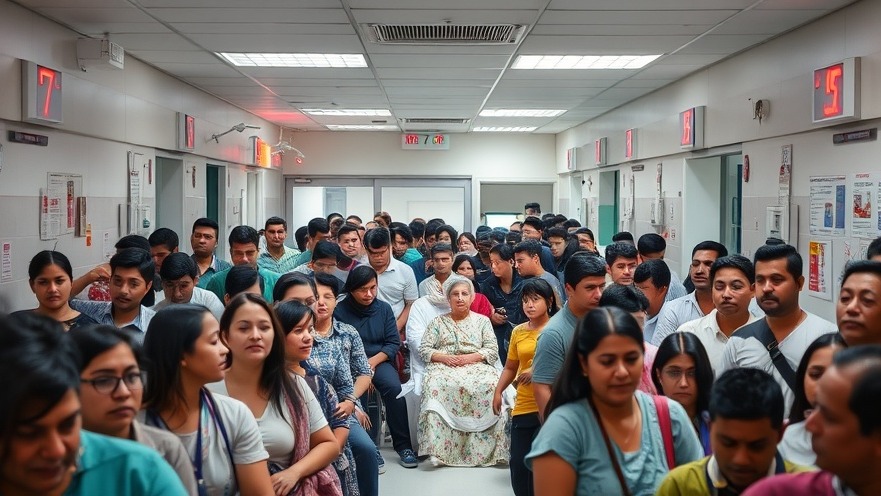
Unpacking the Controversial Texas Hospital Report
The recent report by the Texas Health and Human Services Commission has sparked heated discussions over the cost of healthcare provided to undocumented immigrants. A staggering figure of $121.8 million was quoted as the cost incurred by Texas hospitals in November for providing care to patients without lawful status in the country. This comes amid heightened scrutiny of immigration policies and claims made by government officials regarding the financial impact of undocumented persons on the healthcare system.
The Context Behind the Data
In November 2023, Governor Greg Abbott mandated that hospitals inquire about the citizenship status of patients, framing it as a measure to hold the federal government accountable for what he terms an “open border” policy. Supporters argue that accurate data will guide decisions about funding and policy adjustments. However, critics have flagged several problematic aspects of this approach. For instance, there is no comparative analysis in the report regarding costs incurred from uninsured U.S. citizens, leaving an incomplete picture of the problem.
Addressing the Concerns of Experts
Lynn Cowles, health and food justice programs manager at Every Texan, and other experts have cast doubt on the reliability of the data collected. Cowles pointed out that this figure represents just a small part of the healthcare costs associated with uninsured individuals, most of whom are U.S. citizens. With Texas having one of the highest uninsured rates in the country, it raises questions about how much of the healthcare burden from uninsured citizens is being overshadowed by the focus on undocumented immigrants.
The Unseen Challenges
A key concern raised by advocates is the fear that the inquiry about immigration status may deter undocumented individuals from seeking necessary medical care. While hospitals assure that the information collected will not compromise access to care, many individuals remain apprehensive about potential deportation and thus may avoid hospitals altogether. This chilling effect misrepresents the actual healthcare use and needs within the undocumented population, which Cowles argues could skew the data reported.
What The Report Leaves Out
In Cowles' assessment, the report fails significantly to represent the full extent of the healthcare cost crisis in Texas. “There are lots of unanswered questions,” she remarked, referencing the incomplete snapshot the report provides for policymaking. The focus solely on undocumented immigrants ignores crucial factors contributing to the healthcare burden in the state; factors that include a lack of comprehensive health insurance coverage among many Texans.
Moving Towards An Inclusive Future
The debate over the funding and healthcare rights of undocumented immigrants reveals deeper fissures within Texas society regarding healthcare access, immigration rights, and the way we view those needing medical attention. With ongoing conversations about healthcare reforms and immigration policies, there's a pressing need for dialogue that encompasses all dimensions of the healthcare system—especially those affecting the most vulnerable populations.
Building Public Awareness and Understanding
To enrich the conversation, it's crucial to promote awareness amongst Texans about the broader implications of healthcare policy as it relates to undocumented immigrants. Programs that aim to uncover the local costs of uninsured patients and educate about responsible healthcare practices could pave the path to economic stability and societal health.
Policies should address the systemic issues faced by everyone in need of care, not just one group. Fostering partnerships between healthcare providers, governmental entities, and immigrant advocacy groups could cultivate a more cohesive approach in tackling healthcare costs across the board.
 Add Element
Add Element  Add Row
Add Row 



Write A Comment